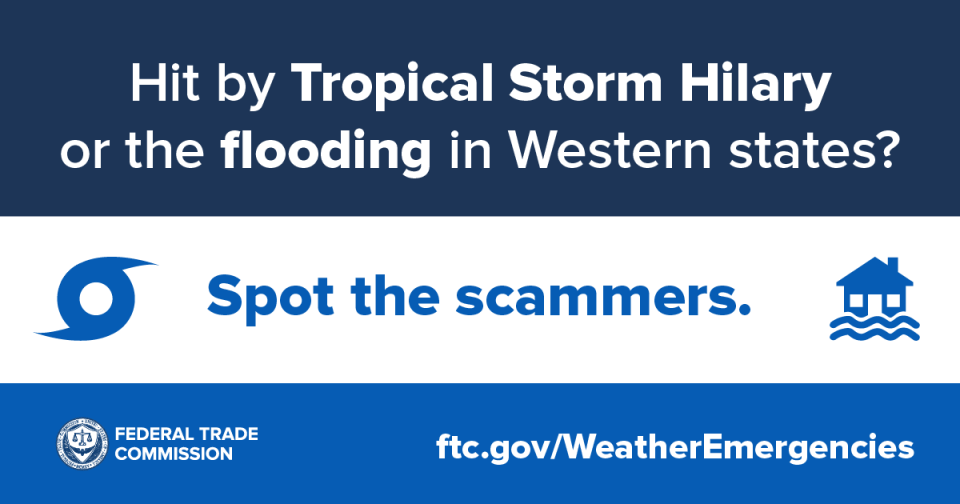In the wake of Tropical Storm Hilary’s wind damage and catastrophic flooding — to say nothing of the California “hurriquake” — scammers are likely to follow. As people in affected areas try to rebuild and recover, scammers will say they’re a government official offering help, or a contractor who can do the work you need quickly. Help and quick action are good…but how do you spot the scammers?
Luckily, there are a few clear ways to spot and avoid recovery scams.
- Know that FEMA doesn’t charge application fees. If someone wants money to help you qualify for FEMA funds, it’s a scam. Getting the FEMA Mobile App will give you information and alerts.
- Know how scammers tell you to pay. Did someone insist you pay by wire transfer, gift card, payment app, cryptocurrency or in cash? That’s a scam. Don’t pay…and then report them.
- Be skeptical of anyone promising immediate clean-up or repairs. Unlicensed contractors and scammers often appear in recovery zones. If they want cash up front, walk away. And if they won’t give you copies of their license, insurance, and a contract in writing, run.
- Spot impersonators. After a disaster, scammers will pretend to be government officials, safety inspectors, utility workers, and others. They might offer help or say immediate work is required. But then they’ll ask for money or personal information like your Social Security or account numbers. Don’t pay, and remember that nobody legit will contact you out of the blue to ask for your Social Security, bank account, or credit card number.
Learn more at ftc.gov/WeatherEmergencies and report recovery scams at ReportFraud.ftc.gov.

